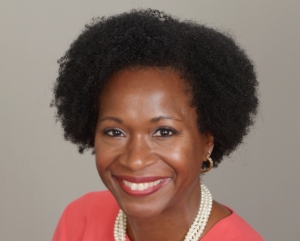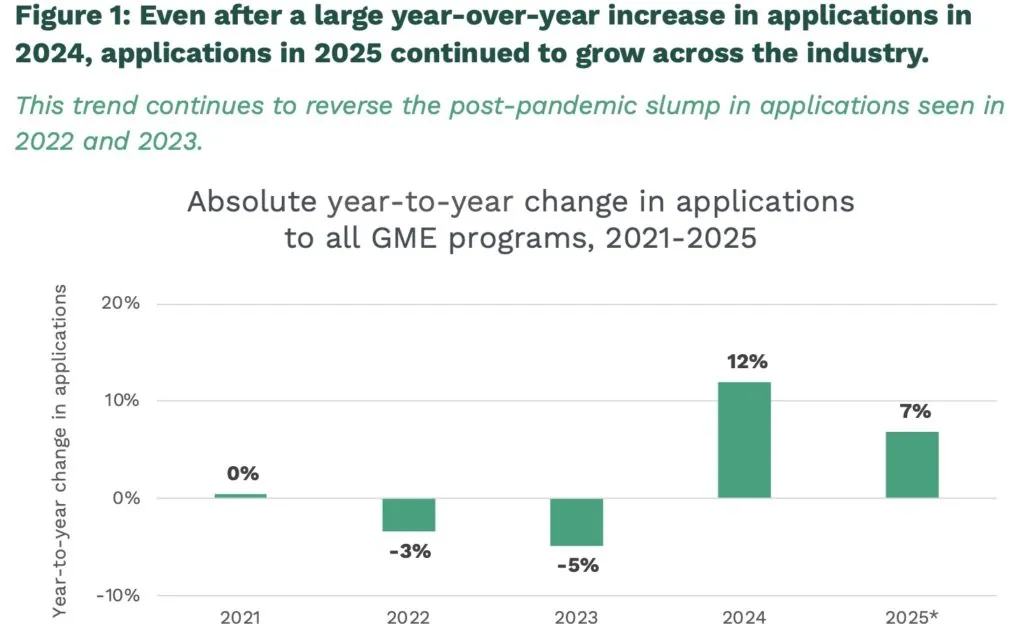
Students in class on ESCP’s Berlin Campus. GMAC’s 2025 Application Trends Survey found that continental European B-schools are gaining applicant interest where U.S., UK and Canadian schools are losing it
Graduate management education demand is still climbing worldwide, but the contours of that growth are beginning to change. According to the Graduate Management Admission Council’s 2025 Application Trends Survey, released today (October 21), applications to graduate business programs increased 7% this year, a gain that builds on last year’s record-breaking 12% surge. The latest gains confirm the sector’s resilience, even amid economic and geopolitical volatility, but also point to stark differences in where and how candidates are choosing to pursue their degrees.
Applications to the United States, Canada, and the United Kingdom — the three most established global hubs — slipped as international students looked elsewhere. U.S. schools reported only a modest one-point decline overall, but the drops were far sharper north of the border and across the Atlantic: 84% of Canadian programs and two-thirds of British programs reported contractions.
By contrast, Asia and continental Europe soared. Applications to Indian business schools jumped 26%, while East and Southeast Asia surged 42%, underscoring the region’s growing gravitational pull for international talent.

FULL-TIME MBA UP, FLEXIBLE FORMATS DOWN

Joy Jones, CEO of the Graduate Management Admission Council: “While some regions and program offerings might face serious headwinds, this year’s application growth gives strong evidence that business schools are quickly adapting to these dynamics”
The Application Trends Survey remains the most widely cited resource on global business-school demand. GMAC conducted its annual poll between mid-June and mid-August 2025; the online questionnaire included roughly two dozen questions covering application volume, selectivity, yield, and deferrals for the incoming class. By the close of the survey, 326 B-schools from 41 countries had submitted data on 1,172 graduate management programs. For the first time in 2025, programs reported application numbers for both the latest and previous cycles, enabling direct year-over-year comparisons without requiring consecutive survey participation.
“The next era of business education is being reshaped by changing student and employer expectations, challenging geopolitics, and new skill demand prompted by technologies like AI,” GMAC CEO Joy Jones says. “While some regions and program offerings might face serious headwinds, this year’s application growth gives strong evidence that business schools are quickly adapting to these dynamics through innovative curricula and industry-aligned experiences, positioning themselves for long-term relevance.”
One of the sharpest contrasts with 2024 is in program demand. Growth was concentrated in traditional, in-person offerings, especially full-time, two-year MBAs and business master’s degrees in finance, accounting, and marketing. Business analytics programs, however, continued to lose steam, with nearly two-thirds of them reporting application declines for the second consecutive year.
Flexible formats that surged during the pandemic have slipped. More than half of executive MBA, online MBA, and part-time MBA programs reported application declines in 2025. GMAC attributes much of the downturn to widespread return-to-office mandates, which appear to be pushing candidates back toward immersive, campus-based experiences.

Source: GMAC
BUSINESS SCHOOLS EMBRACE AI — BUT ADMISSIONS POLICIES LAG
Even as traditional formats are slipping, GMAC’s survey underscores how quickly schools are retooling their content. AI integration has become mainstream: only 16% of programs reported no AI presence in 2025, down from 22% a year earlier. More than half now teach AI as a tool for decision-making, business strategy, and societal impact, often through hands-on projects and experiential learning.
Schools have also expanded into newer areas, with a growing share training students in day-to-day tasks such as prompt writing and using AI to personalize learning pathways, tailoring the pace and content to individual needs. In total, 84% of graduate management programs now report some form of AI integration in the academic experience, a statistically significant increase over the previous year.
While classroom adoption is accelerating, the admissions picture is more complicated. More than half of programs still have no formal policy governing AI use in applications, though regional variation is notable. Schools in Asia are most likely to have explicit prohibitions, while European programs have shown some willingness to relax restrictions. Many institutions fall into what GMAC calls the “it depends” category, allowing candidates to use AI for inspiration but not composition, requiring disclosure or citation of AI usage, or leaving decisions to individual faculty. The survey suggests that, even as business schools embrace AI in teaching, the sector is still wrestling with how — or whether — to regulate its use in the admissions process.

Source: GMAC
SUSTAINABILITY & GENDER SHIFTS
Sustainability has become a key differentiator, GMAC finds. Three in four business programs worldwide now offer opportunities to study sustainability, most commonly through the MBA curriculum. Candidate demand is clear — 63% of prospective students in GMAC’s 2025 survey said sustainability is important to their studies. Asian programs outside Greater China and India are the most likely to require it, while schools in the United States are the least likely.
Women’s participation remains another focal point. Globally, women continue to account for just over 40% of applications, a level that has held steady for more than a decade. In 2025, women applied to MBA programs at a faster rate than men, and their representation among business master’s applicants held just below parity — a trend that marks incremental but continued progress toward gender balance in graduate management education.
See GMAC’s full 2025 Application Trends Survey here.
DON’T MISS LAST YEAR’S STORY ON THE 12% BOOM IN MBA APPLICATIONS WORLDWIDE
The post Global MBA Boom Cools: U.S., UK & Canada Lose Applicants As Asia Surges appeared first on Poets&Quants.
